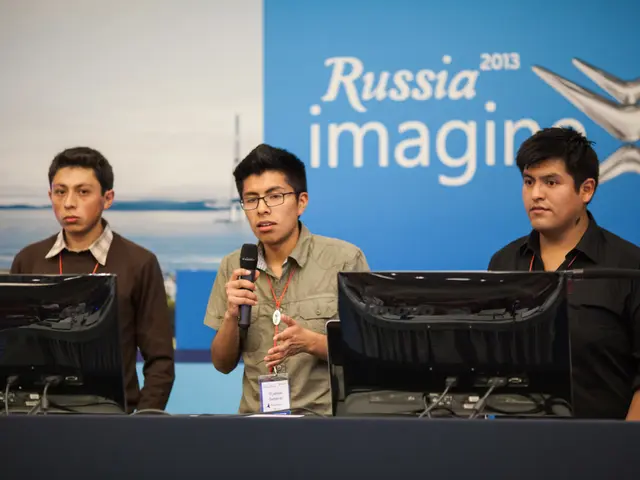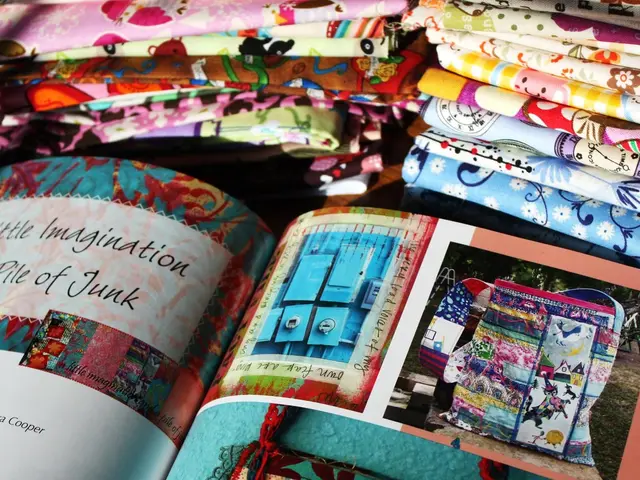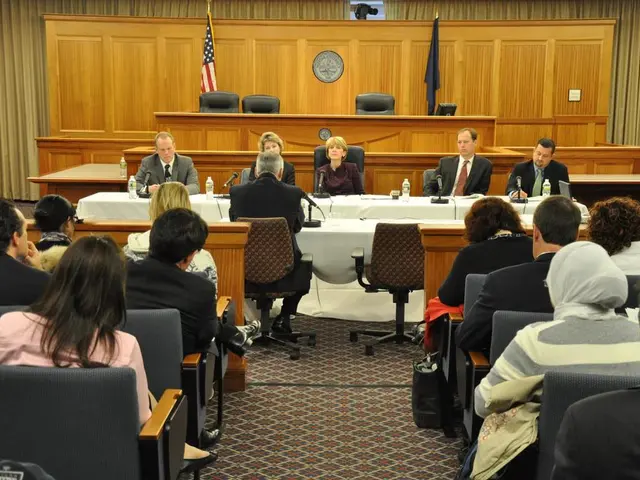Creative Industry's Migrant Workforce Requirements and Talent Demands in the UK
The creative industries in the United Kingdom have been found to heavily rely on international talent, with migrants making up about 16% of the workforce, according to recent data[1]. A new report, titled "The Migrant and Skills Needs of Creative Businesses in the United Kingdom," published by the Creative Industries Policy and Evidence Centre (PEC) on July 29, 2019, provides valuable insights into the sector's current challenges and future considerations[3].
The report is based on a survey of 700 employers in the creative industries, conducted by the Creative Industries Council (CIC) from December 2017 to January 2018[4]. The survey revealed that ten percent of employers had employed a freelance worker from the European Union in the previous 12 months[1]. Additionally, twenty-two percent of employers reported employing at least one non-UK worker in January 2018[2].
One of the key findings of the report is that forty-two percent of employers reported skills issues in January 2018[1]. These issues were most prevalent among larger establishments, businesses in the Creative ICT & Games and Design & Crafts sub-sectors, businesses in Yorkshire and the Humber, the North West, and the North East of England[1].
The report also emphasises the importance of practical, hands-on skills and experience in fields like live events, film, and theatre, alongside transferable skills[4]. There is a call for more flexible, lifelong learning opportunities to address the identified skills gaps at mid-career and senior levels in the creative sector[4].
The report provides evidence that could be useful for those considering the immigration system post-Brexit for the creative sector. The UK's departure from the EU has impacted the way British firms trade and work with European counterparts in the creative industries[5].
The report was authored by Dr Salvatore Di Novo, Research Associate at Newcastle University, and Professor Giorgio Fazio, Research Director of Creative PEC and Chair of Macroeconomics at Newcastle University Business School[2]. For detailed insights, accessing the specific report would be necessary.
[1] Creative Industries Federation. (2018). Creative Industries Census 2018. Creative Industries Federation. [2] Creative Industries Federation. (2018). Creative Industries Census 2018: Key Findings. Creative Industries Federation. [3] Creative Industries Policy and Evidence Centre. (2019). The Migrant and Skills Needs of Creative Businesses in the United Kingdom. Creative Industries Policy and Evidence Centre. [4] Creative Industries Policy and Evidence Centre. (2019). The Migrant and Skills Needs of Creative Businesses in the United Kingdom: Executive Summary. Creative Industries Policy and Evidence Centre. [5] HM Government. (2019). The Future Skills Agreement. HM Government.
- The creative industries in the UK heavily rely on international talent, with migrants making up about 16% of the workforce.
- A new report published by the Creative Industries Policy and Evidence Centre (PEC) in July 2019 provides valuable insights into the sector's current challenges and future considerations.
- The report, based on a survey of 700 employers, revealed that ten percent of employers had employed a freelance worker from the EU in the previous 12 months, and twenty-two percent reported employing at least one non-UK worker.
- Forty-two percent of employers reported skills issues in January 2018, most prevalent among larger establishments and businesses in certain sub-sectors and regions.
- The report highlights the importance of practical, hands-on skills and experience in fields like live events, film, and theatre, alongside transferable skills. There is a call for more flexible, lifelong learning opportunities to address identified skills gaps at mid-career and senior levels in the creative sector.
- The report's findings could be useful for those considering the immigration system post-Brexit for the creative sector, as the UK's departure from the EU has impacted the way British firms trade and work with European counterparts in the creative industries.








